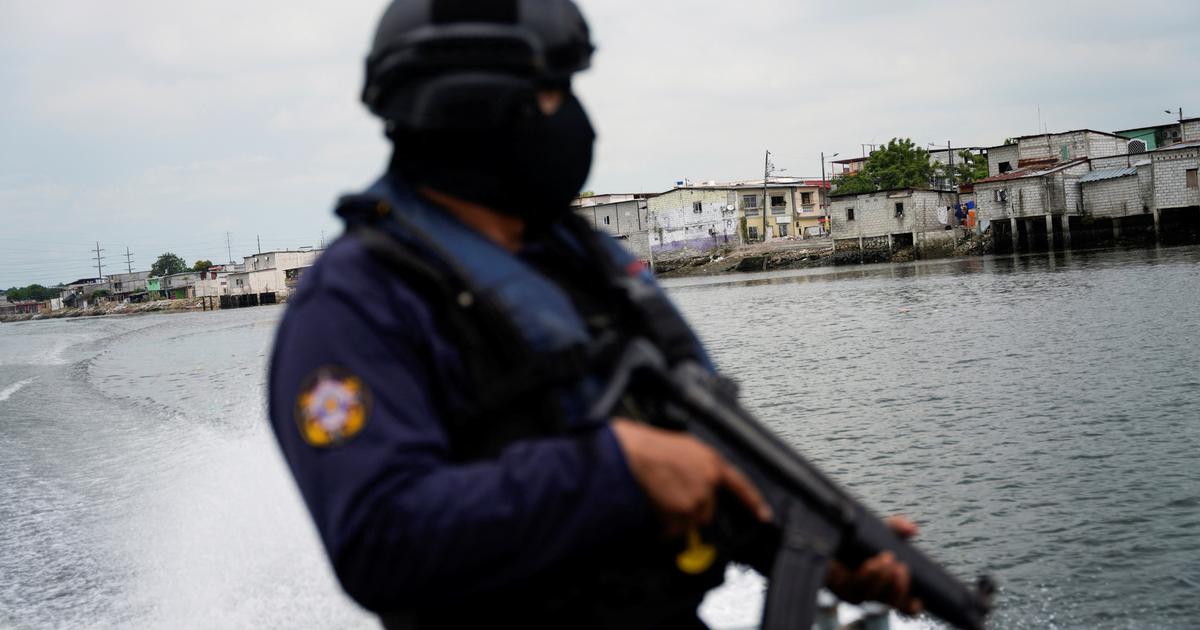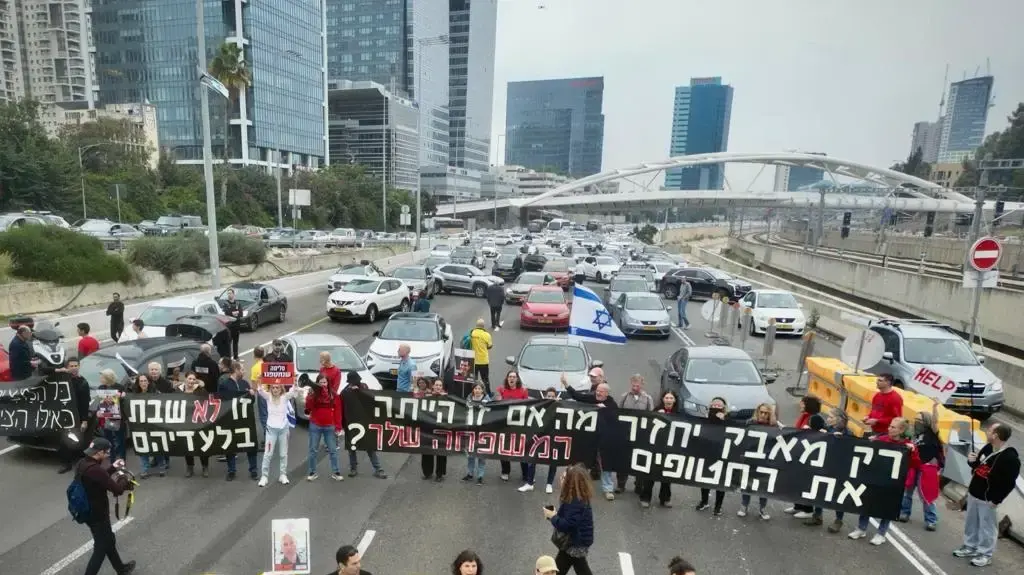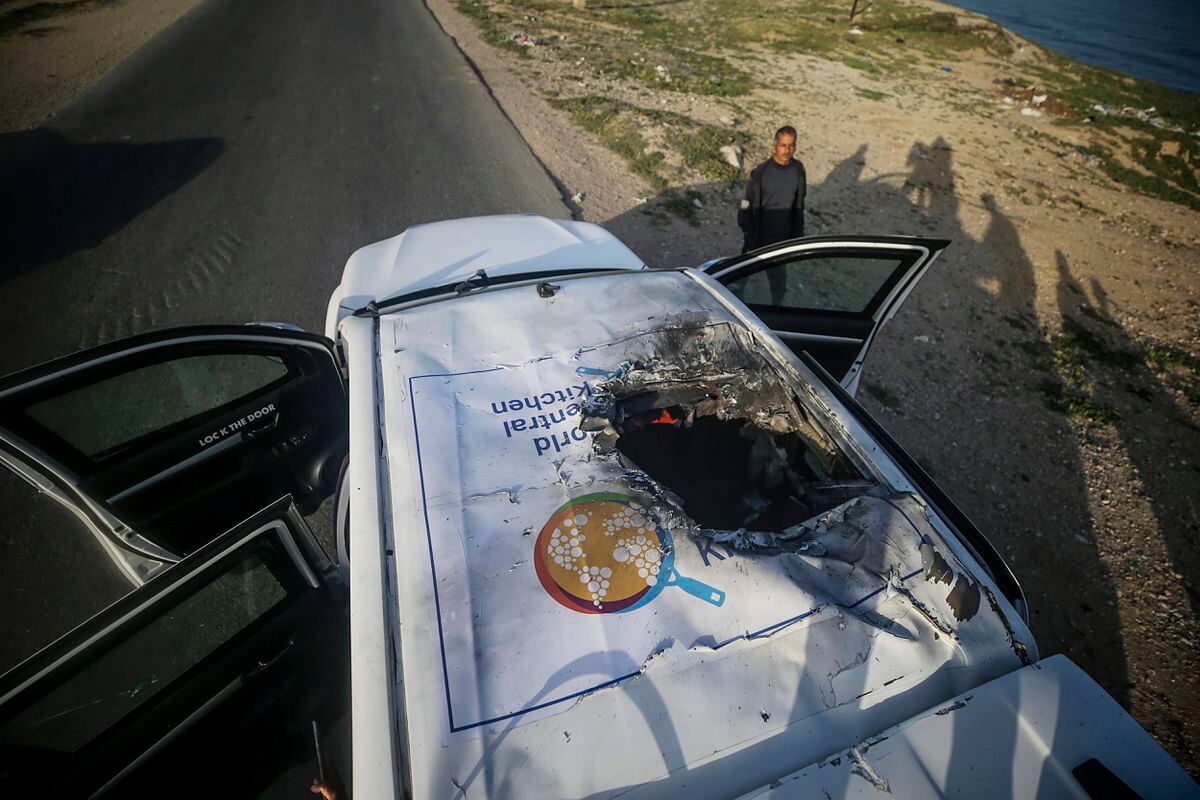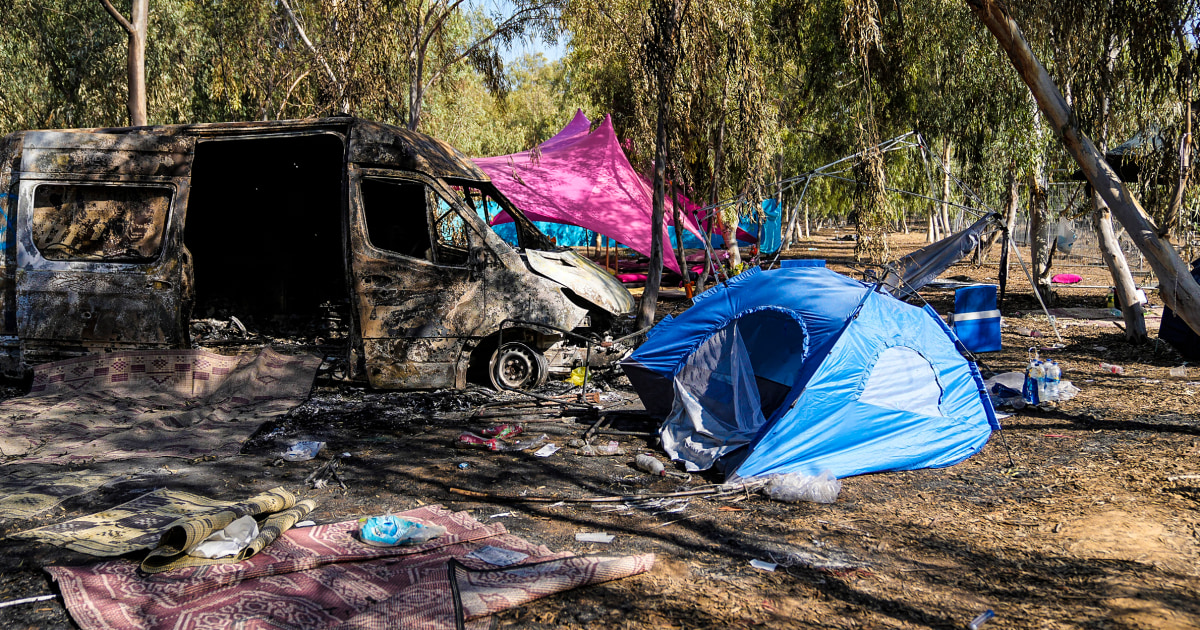(CNN) - When Flavio Ramos was taken to the hospital, he was out of breath and losing consciousness. So it was her son, Arturo, who first noticed the bodies.
Two corpses lay unattended on the tile floor. The next morning, the number of corpses in the room increased to three. Flavio Ramos was dead.
More than a month later, his family has yet to bury Flavio Ramos. They couldn't if they tried. Because shortly after his death, Arturo Ramos says that the hospital authorities lost the body.
"We need a place to say 'Sunday we are going to put flowers on my father's grave,'" his heartbroken son said. "There is nothing, there is nothing you can do."
- Government of Ecuador describes as "creepy" case of woman presumed dead due to covid-19
Flavio Ramos, 55, is another victim of covid-19 in Guayaquil, Ecuador, the site of one of the worst coronavirus outbreaks in the world.
His death and disappearance illustrate how the health system in Ecuador's second-largest city, roughly the size of Chicago, collapsed in a matter of weeks after the outbreak broke out in March.
Bodies in hospitals
Guayaquil unfortunately was not prepared to face the coronavirus.
Last month, the port city of nearly three million people gained worldwide notoriety when videos appeared showing the bodies that were left on city streets after morgues and funeral homes were overwhelmed. Many families made the decision to take loved ones outdoors for fear of infection and because the smells were unbearable.
Three doctors in Guayaquil, each working in different hospitals, described similar scenarios during the months of March and April for CNN: hospitals completely overwhelmed by a pandemic that quickly fell into an unprepared health system, leaving no opportunity to really help people, let alone provide patients with basic levels of care. They all spoke anonymously to CNN for fear of losing their jobs.
"People were terrified and scared," a doctor said of some of the worst days. “The really sick people came to the hospital, dying. You attended one, you did what you could do, then that person dies, and you move on to the next, and that person dies, and so on. ”
"At one point there were dozens of bodies between the hospital rooms and the morgue that needed to be moved," said the doctor. "There were no body bags left."
- Ecuador Prosecutor's Office investigates 16 people for alleged overpricing for body cases
The death rate far exceeded the capacity of city morgues and funeral homes. A second doctor told CNN that he generally saw three or four bodies lying on the floor each day in the hospital. "We had no other place to put them," he said.
The pain of people who cannot bury their relatives 2:32In a video obtained by CNN, a family is seen pulling the body of a loved one out of their car and placing it in a hospital parking lot, unsure of what to do next.
No one would accept it
In January, Flavio Ramos celebrated his birthday, surrounded by family and friends.
During the last week of March, he began to feel sick. On the 31st, his breathing became so difficult that Arturo Ramos, 24, had to take action.
He drove his father to the nearest hospital, hoping that the seriously ill engineer would be admitted quickly and get the help he desperately needed. But when he arrived, hospital staff told him that the facility was already full.
"The doctors said: 'There are no beds for patients,' and that was it," Ramos told CNN by video call from his home in Guayaquil. "If we stayed at the door, they said they would call security to kick us out."
Flavio Edmundo Ramos Yagual in Guayaquil on December 12.
Determined, he tried again in another hospital, and in another, and in another. After four hours of driving, Ramos says that his father was admitted to the Guasmo Sur General Hospital. It was the eleventh installation I had tried.
Ramos recalled that his father spent his last hours in a room with two patients who had already died.
"Both bodies were on the floor," he said. “One was wrapped in a black bag, a garbage bag to be exact, and the other was dead on the ground. No one was taking care of them. "
Ramos left the hospital around 9:30 a.m. on April 1 for breakfast. He says he was gone for about 15 minutes. When he returned, his father was dead.
"No one was with him when he died," said his son. The hospital declined to comment on the case.
"If you keep her here, she will die"
Arturo Ramos told CNN that the hospital was like a war zone. Ana María, 38, who declined to give her last name, said the same about her experience.
She said she took her 67-year-old mother to a local clinic because she was experiencing symptoms of covid-19. A quick x-ray later and the treating doctor said Ana Maria needed to get her mother to a hospital immediately: she had severe pneumonia, the doctor said, probably due to covid-19.
When Ana María arrived at the nearby Los Ceibos Hospital on March 26 for treatment, her mother's lips were turning blue and she was barely able to walk. They waited inside for almost 24 hours for a bed to open.
But as she watched patients in adjoining rooms and nearby hallways, and listened to the anguished screams of her loved ones, she had doubts about keeping her mother in the hospital.
Ecuador: looking for a mother 9:52She took decisive action after speaking to a nurse.
"She said: 'If you have the money to treat your mother at home, do it,'" Ana María recalled. "'If you keep her here, she will die.'"
He took his mother home, hired a private nurse to treat her, and survived. But the vast majority of people in Guayaquil do not have those financial means.
Before Ana María left the hospital, the daughter of another patient spoke to her in the hospital room. “He cried and said to me: 'Your mother will survive because you have the money. We don't have the money. '”
Senior cabinet officials of President Lenín Moreno have publicly apologized for the government's poor response to the pandemic, saying that health officials were not ready for an outbreak with such an astonishing number of deaths.
Del Rincón: Roldán admits what he denied in Conclusions 0:47According to government data, 533 people died of covid-19 in Guayaquil in March and April. However, during that same time period, the government recorded at least 12,350 total deaths in the city, far more than the 2,695 and 2,903 who died in the same period in 2018 and 2019, respectively.
In Guayaquil, the number of covid-19-related deaths could exceed 9,000 deaths, according to three Ecuador-based epidemiologists who spoke to CNN.
Dr. Esteban Ortiz-Prado, an epidemiologist at the University of the Americas in Quito, the capital of Ecuador, said there was no way of knowing exactly how many of the excess deaths were directly or indirectly related to Covid-19, but that the Pandemic was the only reasonable way to explain this year's sudden increase in the total death count. "To me, those are deaths [Covid] until proven otherwise," he said.
Economic losses vs. prevention of infections by covid-19 2:27The government has admitted that the actual number of deaths from the coronavirus is higher than the official count, but said the true number will never be known due to its inability to screen more people.
"We cannot say that the government is lying," said Marco Coral, an infectious disease researcher also at the University of the Americas. "But what we can say is that the government did not perform enough tests on people," an irreplaceable part of any attempt to identify the true number of cases and deaths from coronavirus.
Fortunately, the number of deaths in Guayaquil is decreasing. Since the first week of April, when some of the highest total numbers of daily deaths were recorded, the daily number of total deaths has decreased dramatically: at least 69 total deaths were reported in the city on April 30, well below the peak seen earlier in the month.
Mandatory masks in the absence of a vaccine? 1:17Social distancing measures, which are now slowly easing in the country, seem to have worked.
But as the number of daily deaths decreases, the focus is on finding those who are already lost.
Losing the right to say goodbye
Amid the chaos of the mounting bodies, the disorganization has led to the wrong location and wrong identification of the deceased.
Many families have been unable to say goodbye to their loved ones.
When Arturo Ramos returned to the hospital the day after his father's death, authorities said they could not find his remains.
According to officials, the only way he could try to locate him was to go to the morgue and search for himself through unidentified remains.
"[Inside the morgue] there were bodies piled on top of each other," Ramos said. "Entering that room is like hell."
He said that the bodies in the room were separated by those that had already been identified and those that had not.
Arturo Ramos, 24, on day 3 of searching for corpses in the hospital morgue and containers to find his father. On the right, vehicles line up with coffins as they wait to collect the remains of their loved ones.
He searched body after body for an hour looking for his father, accompanied by a hospital employee who, after not finding his father, told him to return the next day.
For the next four consecutive days, Ramos estimates that he observed approximately 250 bodies, both inside the morgue and in shipping containers that had been installed outside to handle the overflow.
A video given to CNN shows the containers on the grounds of the Guasmo Sur General Hospital. The bodies are seen in a container filled at least three in height, decomposing into different types of body bags.
Ramos said only part of the morgue and one of the shipping containers was refrigerated.
"I was not lucky," Ramos said. "I never found it."
Arturo Ramos with his father Flavio Ramos in March 2019
The problem of lost remains is so widespread that the attorney general launched an investigation last month into the mismanagement of the remains in the hospital morgues.
CNN asked the government for exact figures on how many remains are missing, but as of the date of publication, has received no response.
A website has been created where anyone can search for the name of a missing loved one. If the government has news to share about the location of a body, it will appear in a pop-up on the screen.
More than a month after Flavio Ramos' death, a search for his name opens a pop-up window that only reads: 'No results were found.'
Ramos cries for his father only these days. He is separated from his family for his own safety.
Last week, she tested positive for the virus.
Ana Maria Cañizares from CNN Spanish in Quito, Ecuador contributed to this report.





/cloudfront-eu-central-1.images.arcpublishing.com/prisa/N666OIF66VEFREUTK66WBJDGCM.jpg)









